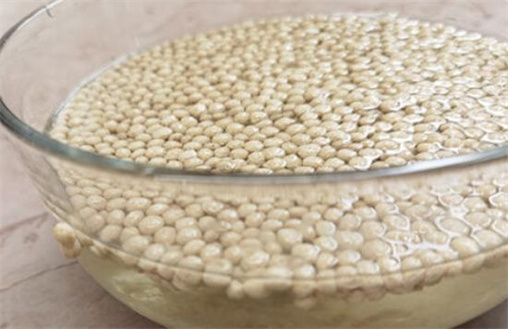Feed additives refer to those substances that are added to compound feeds in addition to common feeds in order to supplement the nutritional needs of animal growth, reproduction and production or for a special purpose. Its purpose can meet the special needs of aquaculture production, such as health care, growth promotion, appetite increase, prevention of feed deterioration, preservation of the activity of certain substances in feed, destruction of toxic components in feed, improvement of feed and animal product quality, improvement of breeding environment, etc.
1. BentoniteBentonite is commonly known as "white clay". In addition to containing a large amount of silicon and aluminum compounds, it also contains phosphorus, copper, potassium, magnesium, zinc, iron, manganese, chromium, cobalt, barium, calcium, titanium and other mineral elements required by more than 20 kinds of pigs. . These elements are the components of enzymes, hormones and biologically active substances, which can significantly change the activity or immune performance of enzymes and hormones. First, bentonite has good palatability and adsorption, which can delay the speed of feed passing through the digestive tract, so that pigs can effectively use nutrients and improve nutrient digestibility; second, bentonite has many special physical and chemical properties, which can adsorb pigs Harmful substances in the body can inhibit the growth of bacteria in the gastrointestinal tract, improve resistance, and promote growth and development; the third is to replace grain as the carrier of various trace elements to prevent the imbalance of calcium and phosphorus ratio, participate in the body's metabolism and immune response, and improve the survival of pigs Rate. Bentonite is generally added 2% to 4% in pig diets and works well.
2. Coal ash slagCoal ash slag not only contains phosphorus, potassium, copper, iron, magnesium, zinc, manganese and other mineral elements needed by pigs, but also contains a new type of pig growth regulator - humic acid. Feeding it to pigs can directly strengthen the vitality of various enzymes, promote metabolism, and increase the accumulation of organic matter in the body. Adding 3%~5% coal ash slag to the pig's diet can regulate the salt and alkali in the pig's body, improve the growth rate, reduce the disease, and effectively prevent the pig's diarrhea, constipation, asthma, etc., and significantly reduce the mortality rate.
 3. Maifan stone
3. Maifan stoneMedical stone is a kind of natural health medicine stone with biological activity. It is a kind of rock with specific structure and combination of trace elements formed by weathering of granite. First, the contained metal elements are easily soluble in dilute acid. When it passes through the intestines and stomach of pigs, it can release the contained elements and be directly used by pigs, especially the trace elements nickel, titanium, selenium and so on are enzymes in pigs. It can improve the activity of enzymes and the utilization of feed nutrients. Second, medical stone has good adsorption and ion exchange properties, and can selectively adsorb bacteria in the digestive tract of pigs, which plays a role in disease prevention. It is advisable to add 1% to 3% of medical stone in pig diet.
4. ZeoliteZeolite is a natural silicate mineral. It contains calcium, phosphorus, iron, copper and other 18 macro elements and most trace elements required for the growth and development of pigs. It is an ideal natural mineral feed additive with low price. Its interior has a multi-porous and porous crystal structure. The volume of the pores (holes) accounts for more than 50% of the total volume of the zeolite. It has a strong adsorption force and can adsorb harmful gases such as methane and ethane in the intestine and toxins from Escherichia coli and Salmonella. , and can inhibit the growth and reproduction of harmful bacteria. If adding 3% to 5% zeolite powder to pig diet, the average weight gain of pigs can be increased by 10%; it can prevent pig diarrhea, infectious gastroenteritis, bronchitis and rickets, such as feeding sows can accelerate intrauterine growth speed, prevent stillbirth, improve survival rate, save 70% of medical expenses, reduce odor, and improve the breeding environment. The water content of the pig's stool is reduced, and the pen is clean and dry, which fully improves the hygiene of the pig farm and is beneficial to the growth and development of the pig.
5. OthersAdd 0.5% to 0.6% of nitrite to the pig's feed, the daily weight gain is increased by 20%, the feed utilization rate is increased by 15%, and the pigs are healthy and less sick, with bright fur, strong appetite, and normal bowel and bladder.
In addition to a large amount of iron and copper compounds, the deep yellow clay in mountainous and hilly areas of yellow clay also contains mineral elements required by more than 20 kinds of pigs. Adding 2% to 4% yellow clay to the pig's diet has obvious effects on increasing appetite, increasing weight gain and preventing diseases.
Add 10 mg to 20 mg of zinc sulfate per day for each piglet, and 30 mg to 50 mg for large pigs, which can make pigs have a strong appetite, smooth fur, less disease and faster growth.
Adding 0.25% copper sulfate to pig feed can increase the daily weight gain of pigs by 16%, increase the feed utilization rate by 5%, and reduce the feeding cost by about 4%.

